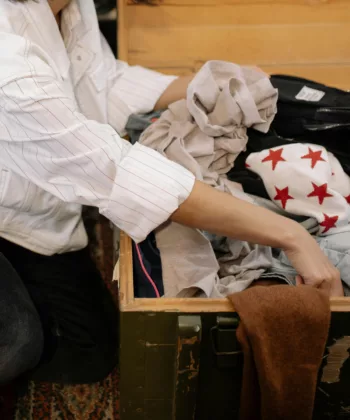The subject of death and dying is still a taboo topic often shrouded in awkwardness and uncertainty. But having the difficult conversations and becoming more organised for your death in advance can allow you to feel confident that your wishes will be carried out, and your loved ones looked after.
While the idea of making plans for what happens when you die may seem like something you don’t need to think about yet, getting organised is an act of responsibility. We make plans for other aspects of our future, so why not plan for what we want to happen at the end of our lives?
Planning for death is an act of consideration for those closest to you by making things easier for them when the time comes. It’s also an opportunity to reflect on the values and principles that have guided your life, and to make sure that these beliefs are upheld in your final moments and beyond.
Here are some tips on how to start planning when thinking about death:
Begin the conversations
It’s a good idea to let your loved ones know that you are starting to get organised by planning for death in advance. When you speak to those close to you, approach the topic with empathy: while you may have been thinking about plans for some time and considering your options in a practical way, the subject may come as a shock to those closest to you.
Emphasise that thinking about death and dying in advance can provide peace of mind and lighten the burden on loved ones. You can ask if they have given any thought to their own wishes and show that you’d like to have an open dialogue about end-of-life and after-death matters.
Death cleaning

Death cleaning is a Swedish practice which involves getting rid of any unnecessary material items. The focus is on clearing away the items which you won’t be leaving to loved ones when you die.
Go through the process of getting your belongings in order and de-cluttering. It’ll mean that you won’t be leaving your family with heaps of items to sort through and endless decisions about what you might have wanted them to keep – this can be an extra pressure during an already stressful time.
You can de-clutter while considering other aspects of getting your affairs in order, if you do come across valuable or sentimental items which you want to leave to a specific person you can make a note to add it into your will.
Writing a will
One of the most critical aspects of pre-planning for death is writing a will. A will outlines how you want your assets to be distributed after your death and allows you to specify who will inherit your property, belongings, and financial assets. It can also name guardians for children or pets as well as state who will be responsible for executing your wishes. When outlining your wishes in your will, try to be as specific and clear as possible. You may also choose to consider if you want some of your assets to be used to support favourite causes or charities.
You may have written a will some time ago and consider that as a task ticked off of your list. However, life is ever-changing and so too should your will be. Make sure to review and update your will to reflect any significant life events, such as marriage, new births, divorce, or changes in financial circumstances.
Make sure that your will is valid and legal by checking this page on the YouGov website.
Planning your funeral in advance

By planning your funeral ceremony you can help to make life easier for those you leave behind. According to a recent SunLife report 1 in 5 people don’t know any of their loved one’s funeral wishes.
Think about which type of funeral you feel would be most appropriate for you, including whether you would choose a traditional burial, a cremation, or a more eco-friendly option. Click here to read our blog on environmental funeral options.
Funerals can be held in a variety of places. Most are held in crematoria, cemeteries, or woodland burial sites but they can be held in other locations, such as a community hall or hotel. There is also a growing number of direct cremations – where the cremation takes place with no ceremony. These are often followed by a ceremony at a later date.
You can also consider including things in the ceremony that are meaningful to you and your values, such as songs and music or specific poems or readings. If you’re not religious and would like your funeral to be an authentic reflection of your beliefs, let your loved ones know that you would like a non-religious funeral.
It’s a good idea to write down your wishes and keep them in a safe place with your will.
Alternatively, if you know you would like a personal, non-religious funeral, and want to take the pressure of planning a funeral off of loved ones, you can work with a Humanist Ceremonies celebrant who can help you plan your funeral. Your celebrant will talk with you about the type of funeral you would like. Your wishes will then be recorded and securely stored, with any notes or scripts that the celebrant has written kept in a secure repository.
End-of-life care
Considering your choices for end-of-life care in advance means that you will be able to share your preferences while you have the full capacity to do so.
While you can’t predict and plan for every situation, having open conversations will allow your family to be able to more confidently make choices for you if you become too unwell to make decisions for yourself. There are also some options that you can decide on in advance, such as where you would want to stay if you become unable to look after yourself – at home with carers, in a hospice, or in a hospital?
You can find more information about advance care planning here on the Hospice UK Website.
Find out more
To learn more about humanist funerals, or find a celebrant, use the links below:
Find a humanist funeral celebrant
What are humanist funerals?
Pre-Planned Funerals
Humanist funeral FAQs





